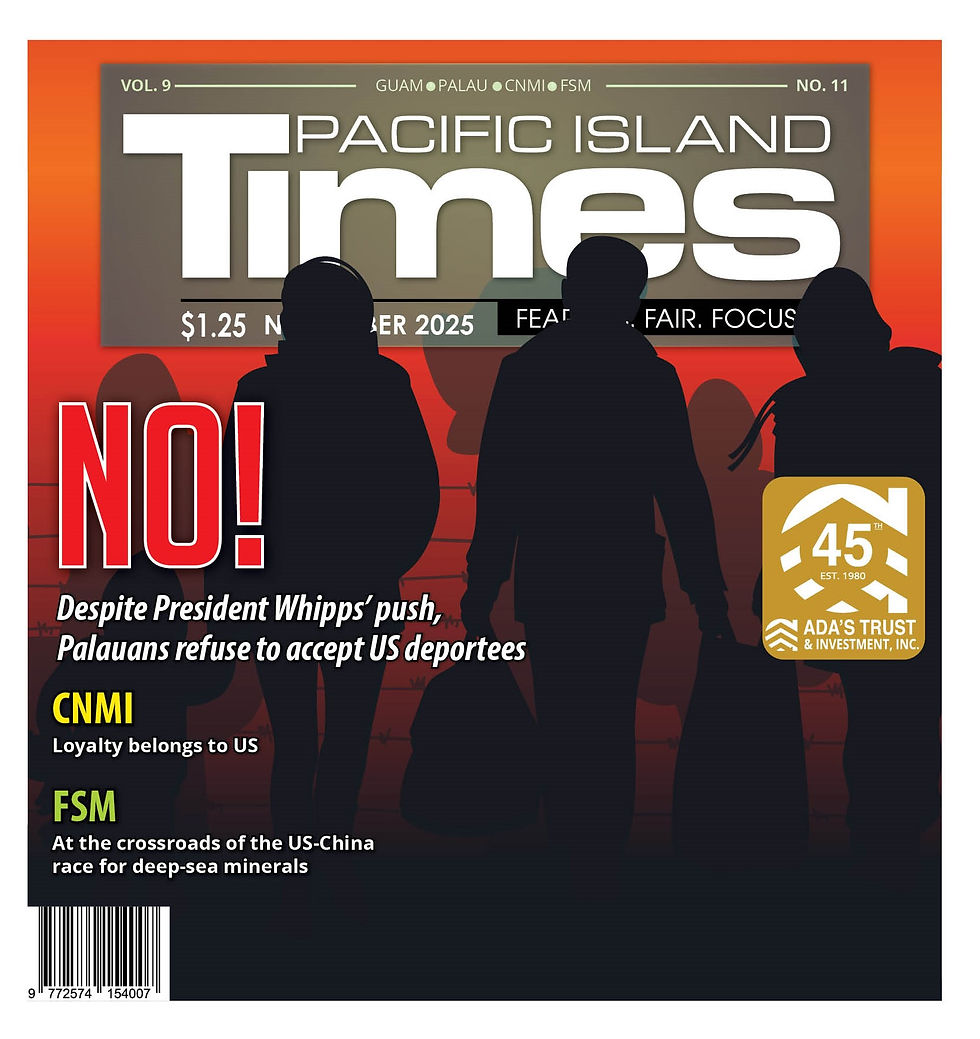The healing we still need: Covid's lingering shadow
- Admin

- Nov 26, 2025
- 3 min read


Five years after the height of the Covid-19 pandemic and the world first locked down, America’s healthcare professionals are still recovering. Their scars run deeper than most people see. As a frontline physician who witnessed the chaos firsthand, I recognize a familiar pattern emerging, and it resonates deeply through our collective trauma.
We healthcare workers are experiencing something akin to what Vietnam veterans faced decades ago. We answered the call of duty, with inadequate resources,
fought an invisible enemy, and returned to a place that seems determined to rewrite the history we lived through. The gratitude that once manifested in nightly atta-boys has shifted into something darker: blame, distrust, and sometimes outright hostility.
Patients are not patient anymore. They arrive with frustration simmering just beneath the surface, looking for someone to hold accountable for how Covid disrupted their lives. Like parents facing disillusioned teenagers, we absorb their raw emotions. It is pain that’s personal, cutting, honest, and true. These confrontations force conversations that have long needed to happen, but they come with controversy and complications.
Discussions about ivermectin, immunizations, vitamin D, and protein infusions are examples where science and skepticism clash daily. These once-clinical topics now carry political weight, with figures positioning themselves as leading voices, despite lacking medical credibility. These so-called leaders refer to the collective, yet unidentifiable “they.” You know, “they” say this is not so good for you after all or “they” say it’s nothing to worry about. Who exactly are these “theys”?
Meanwhile, the very foundation of medical authority continues to erode. The American Nurses Association is fighting federal loan policy changes that severely limit the financial aid available to future nurses, defining nursing as less than a professional degree.
Others on that list of degrees this administration will not classify as professional and affecting their loan programs? Physical therapy, physician assistant, and audiology. There will be no incentive to build a pipeline of future specialists.
When local clinics have gone years without reimbursement for being commandeered during the pandemic, that also shows a lack of respect for the helpers in our community.
As Guam faces ongoing healthcare staffing challenges, these financial barriers could collapse an already critical situation.
The divide over vaccinations extends to recent changes to the CDC’s autism website, which have drawn unprecedented condemnation from over 40 leading medical, health, and patient advocacy organizations.
The American Academy of Pediatrics and others issued a joint statement rejecting “this latest attempt to create fear around routine childhood immunizations” by promoting long-disproven connections between vaccines and autism.
Oh, the irony! As public figures fuel skepticism about vaccines and medical expertise, research from the University of Floridaand MD Anderson Cancer Center reveals that COVID-19 mRNA vaccines—the very technology that saved countless lives during the pandemic—now show promise in fighting cancer.
C-A-N-C-E-R. Patients with advanced lung or skin cancer who received the Covid mRNA vaccine within 100 days of starting immunotherapy lived significantly longer than those who didn’t. This breakthrough is worth monitoring.
This contrast highlights our current predicament: Potentially life-saving advances emerge while trust in medical science falters.
The continued erosion of trust feels like another betrayal for those of us who worked through Covid’s darkest days, when we made impossible choices, witnessed unimaginable suffering, and carried on despite exhaustion and fear. The first came from a virus that overwhelmed our systems; the second comes from a society eager to move on without acknowledging what actually happened. Clinics on island that were taken over during the pandemic have the added bonus of remaining unpaid.
Yet we continue to show up, care for the suffering, and hope that empirical evidence will eventually outweigh political expediency. Because when choosing which side to err on, science can be lifesaving. No one can say with certainty that scientists never make mistakes, but science itself is designed to detect and correct those mistakes over time.
The healing our society needs won’t come from political figures or social media debates. It will come through honest conversations between patients and healthcare providers, acknowledging both the miracles and limitations of modern medicine, and rebuilding trust one interaction at a time.
That journey begins when we all recognize a simple truth: We’re still recovering, together.
Subscribe to
our monthly
digital edition





